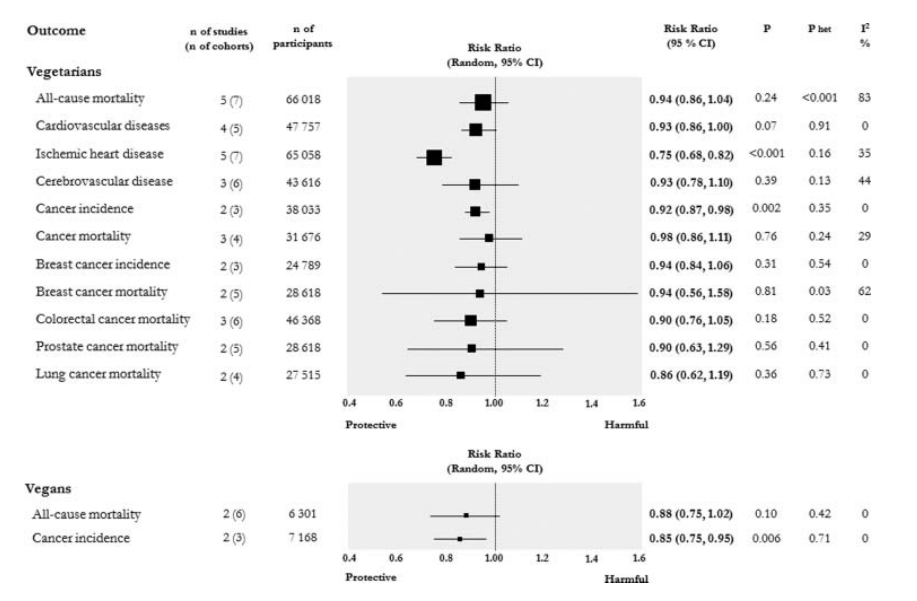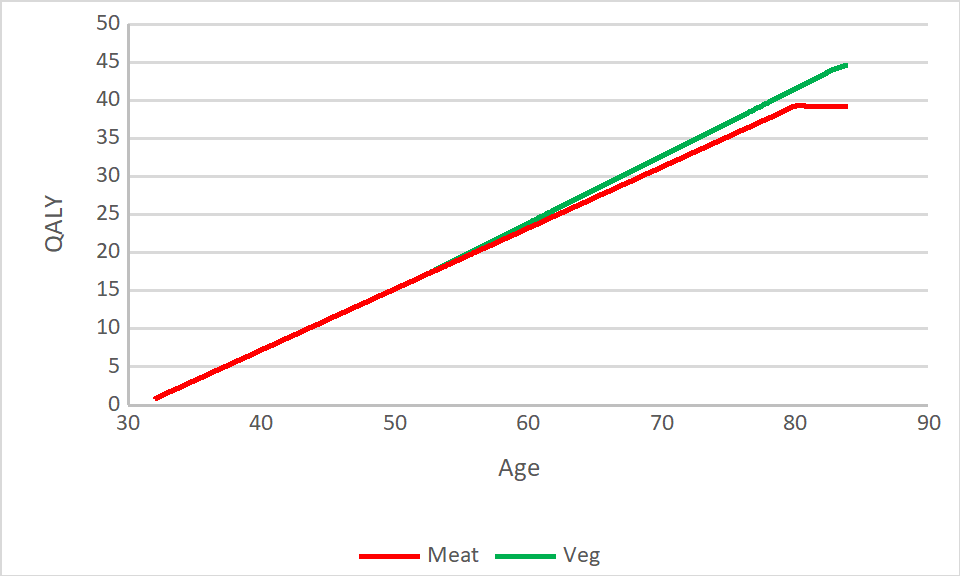4.2. Long Term Health Outcomes
Estimating the long-term health outcomes of eating certain things is difficult because food is highly bound up in the culture we live in and culture correlates to just about every health outcome you could possibly imagine. Even less conveniently, nutritional science is highly anti-inductive; if a particular food group is identified as being healthy people with an interest in being healthy flock to that food group, and people with an interest in being healthy are likely to be healthy for a bunch of reasons regardless of diet.
So here’s a nice headline result: vegetarians have less heart disease with extremely high certainty, and probably less cardiovascular disease and cancer too. Most of the studies in that meta-analysis have had some of the really obvious stuff adjusted away (race, income, etc.) but not all studies adjust for all confounders, and we should be cautious about trusting studies that ‘adjust for confounders’. If you ignore confounders then the answer is clear; eating vegetarian is good for you in every single way we can measure (including, possibly, circulating testosterone in defiance of stereotypes about meat eaters!).

If you are interested in confounders: There are a handful of cool natural experiments, taking groups with reasons to eat certain food but not bother with the associated healthy lifestyles, which are the closest we are likely to come to a true experiment in this area. In particular, the American Adventist Health Studies are pretty much state of the art in the field from what we can see. Adventists have quite unique dietary habits, brought about by religious prohibitions on certain foodstuffs which some Adventist churches follow and some don’t. Consequently, if you are an Adventist you are functionally ‘randomized’ into different food-eating conditions depending on which church you attend, and this randomization can be exploited by researchers.
Based on the Adventist Health Studies, a vegetarian diet increases life expectancy by around 3.6 years. The less meat you eat, the healthier your BMI and the less likely you are to get diabetes.
Overall we might expect lacto-ovo vegetarians to have a health related quality of life around 10% better than a meat eater, with most of this benefit being apparent 20 years after making the switch to a vegetarian diet.
You could complicate this picture a lot (especially by introducing future discounting) but we think the general principle that if you value life-years towards the end of your life you should likely go vegetarian is well demonstrated by the data:

One final point on how meat might affect your lifespan; there is a growing awareness of the fact that industrially produced meat is an ideal breeding ground for zoonotic disease, and that those diseases can mutate and jump to humans very quickly. Previous pandemics such as H1N1 (‘swine flu’) and H5N1 (‘bird flu’) may have originated with farmed animals, and were rapidly spread by the close contact of unhealthy animals and global nature of the meat supply chain. At the margin, eating meat probably increases the probability of a global pandemic but there isn’t good evidence on how much your individual consumption affects things at the margin.
In the model we take the Adventist study result at almost face value, estimating that eating vegetarian will increase your lifespan by 3 years, and include constant low costs due to possible nutritional deficiency and moderate benefits to health that appear later in life.